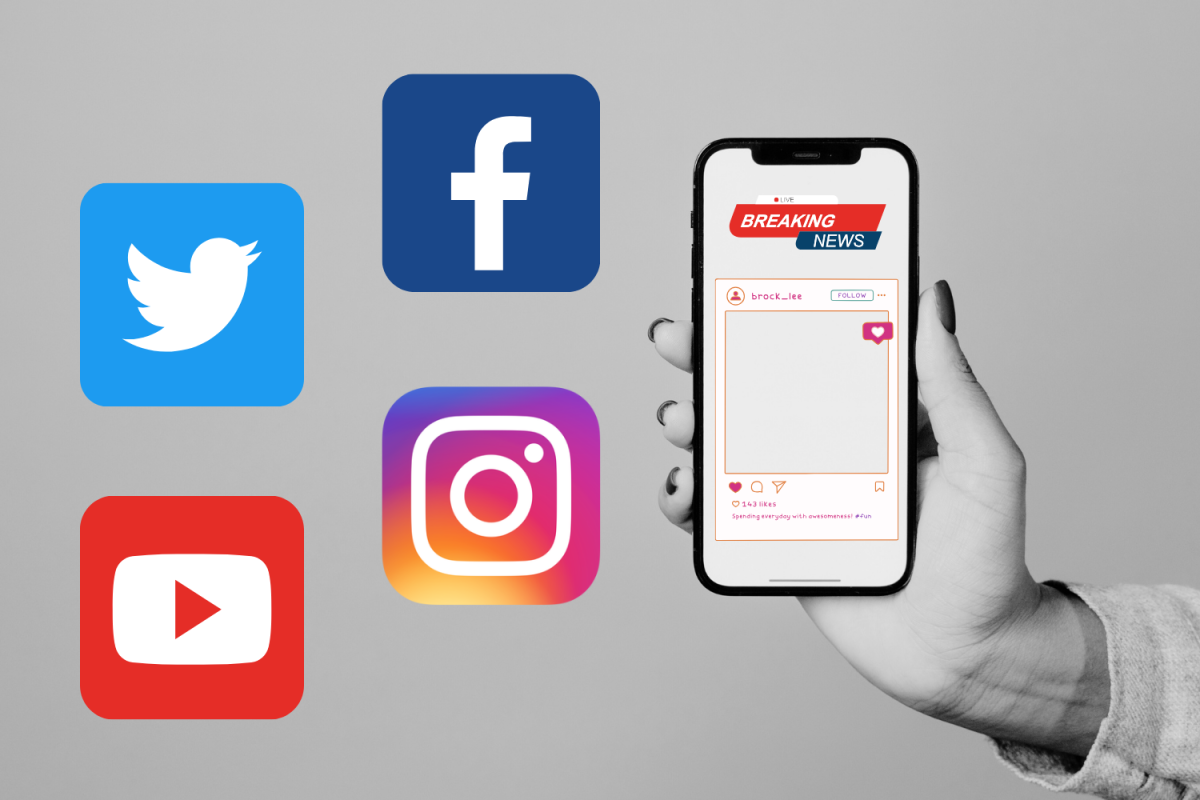It seems there is no place where misinformation spreads faster than on social media. It has been proven many times, through the pandemic, the Russia-Ukraine War, and now the Israel-Palestinian war, that social media is a breeding ground for misinformed opinions. In particular, social media has created an environment where individuals, notably influencers, feel obligated to post on topics about which they are uneducated, thus contributing to the spread of misinformation.
Social media plays an undeniable role in shaping the way people view current events. Depending on how it is used, it can veil the truth or illuminate lies. Social media certainly has the power to educate people, but it can also be a catalyst for misinformation.
If a social media figure has a biased opinion, they influence their audiences to side in that direction. When influencers and celebrities post their uneducated stances online, they sway their fanbases not with the truth but with their popularity.
In light of the Israel-Palestinian war, celebrities have received backlash over their posts on Instagram about the conflict. For instance, reality TV celebrity Kylie Jenner posted a photograph of Israel’s flag alongside the words, “Now and always, we stand with the people of Israel!” She received backlash for the post and ended up deleting it. Whether she no longer agreed with her original post or was responding to the backlash is hard to tell. Regardless, it is clear that her opinion wavered in the face of hate.
In response, many claimed that someone’s opinion on a conflict should not change based on hate comments. They criticized Kylie Jenner for being uneducated and unable to truly stand up for the statement she shared.
Over and over, I have seen how people choose sides based on other people’s beliefs rather than educating themselves. People must develop their stances and form their own opinions rather than siding with what appears “popular.”
Responding to current events and supporting people facing tragedy is not a trend. Posting a singular infographic is not activism. If you wish to express your opinion, do so in an informed manner. Share the facts and amplify people’s voices, but do not simply “pick” a side based on what you see on social media. People must educate themselves before taking a stance.
Additionally, we must stop criticizing social media figures who do not immediately speak out on global issues. It’s better to give a platform to those who are educated than to pressure those who are not informed.
The influx of uneducated voices on social media drowns out those who really need to be heard. Social media should be used as a means of empowering others with knowledge. It’s a way for individuals to observe perspectives outside their own and capture the true nature of current events.
The pressure for public figures to constantly express their opinion gives rise to increasing “performative activism,” which is when people claim to support a group online but would never donate money, attend a protest, or defend a person in reality. People need to see public figures who genuinely care about the topics they post about.
Keep in mind that social media is widely polarizing. A single post cannot sum up an entire conflict or event. In that same vein, a single post should not sum up your whole opinion. Especially now, we need to think critically about current conflicts and not simply jump to slogans. The Israel-Palestinian war is one of the most important conflicts of our time, and it is critical that we properly inform ourselves about it. Going forward, we must remember that our opinions should be rooted in a multitude of facts. Listen to various perspectives about an event, read different news sources, and continue to educate yourself. By doing so, you will be able to use social media as a powerful tool to raise awareness and, in general, be informed in your discussions with others.












